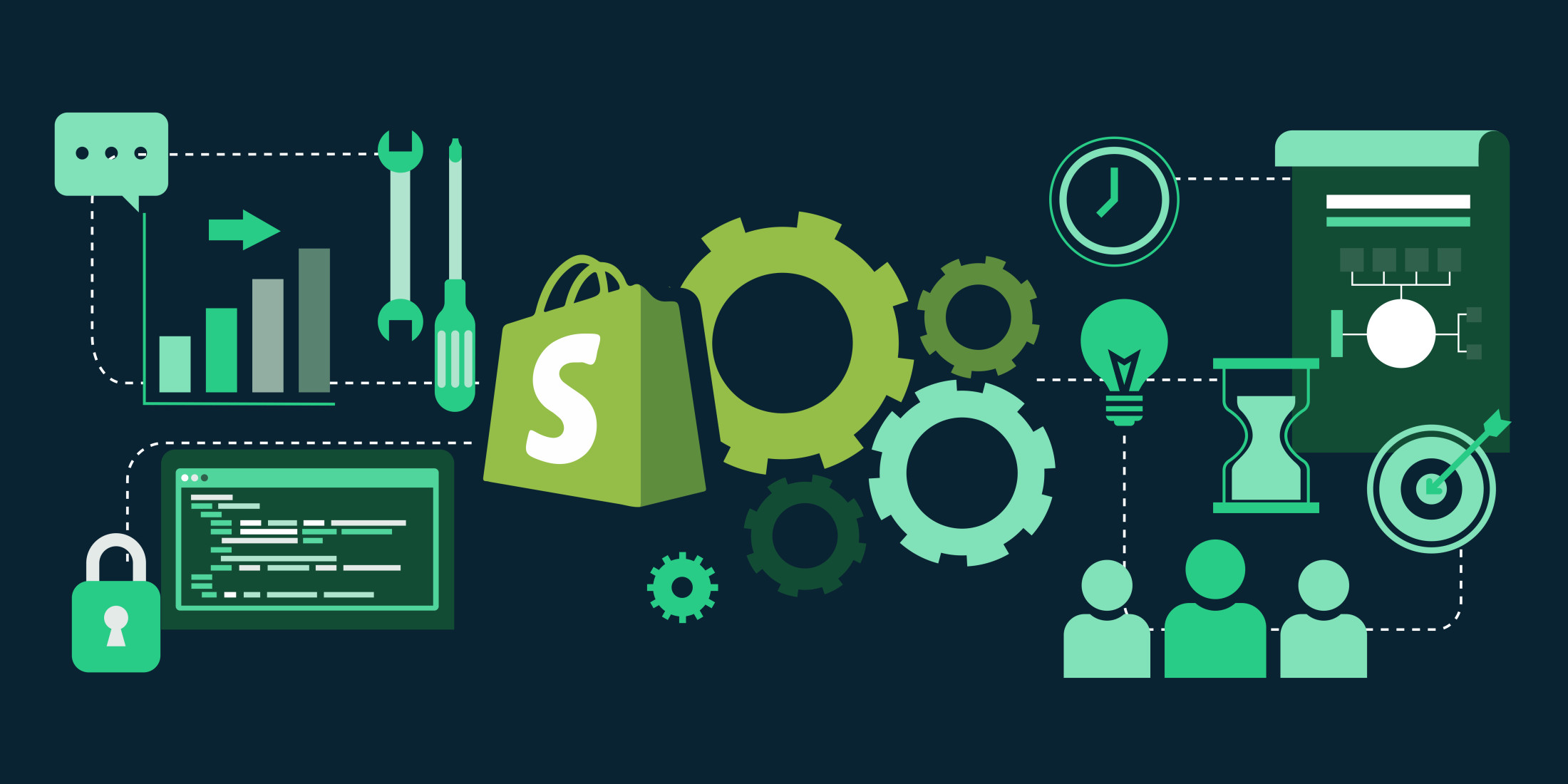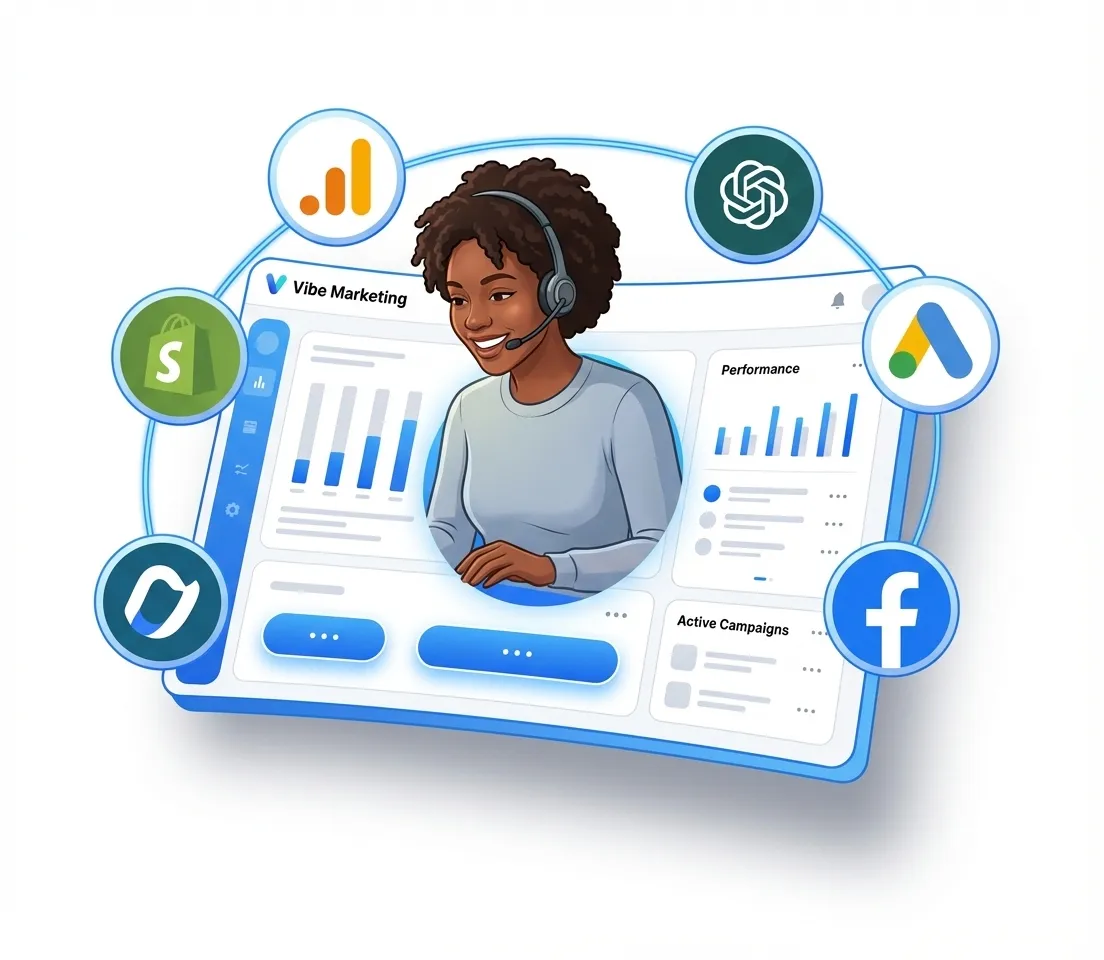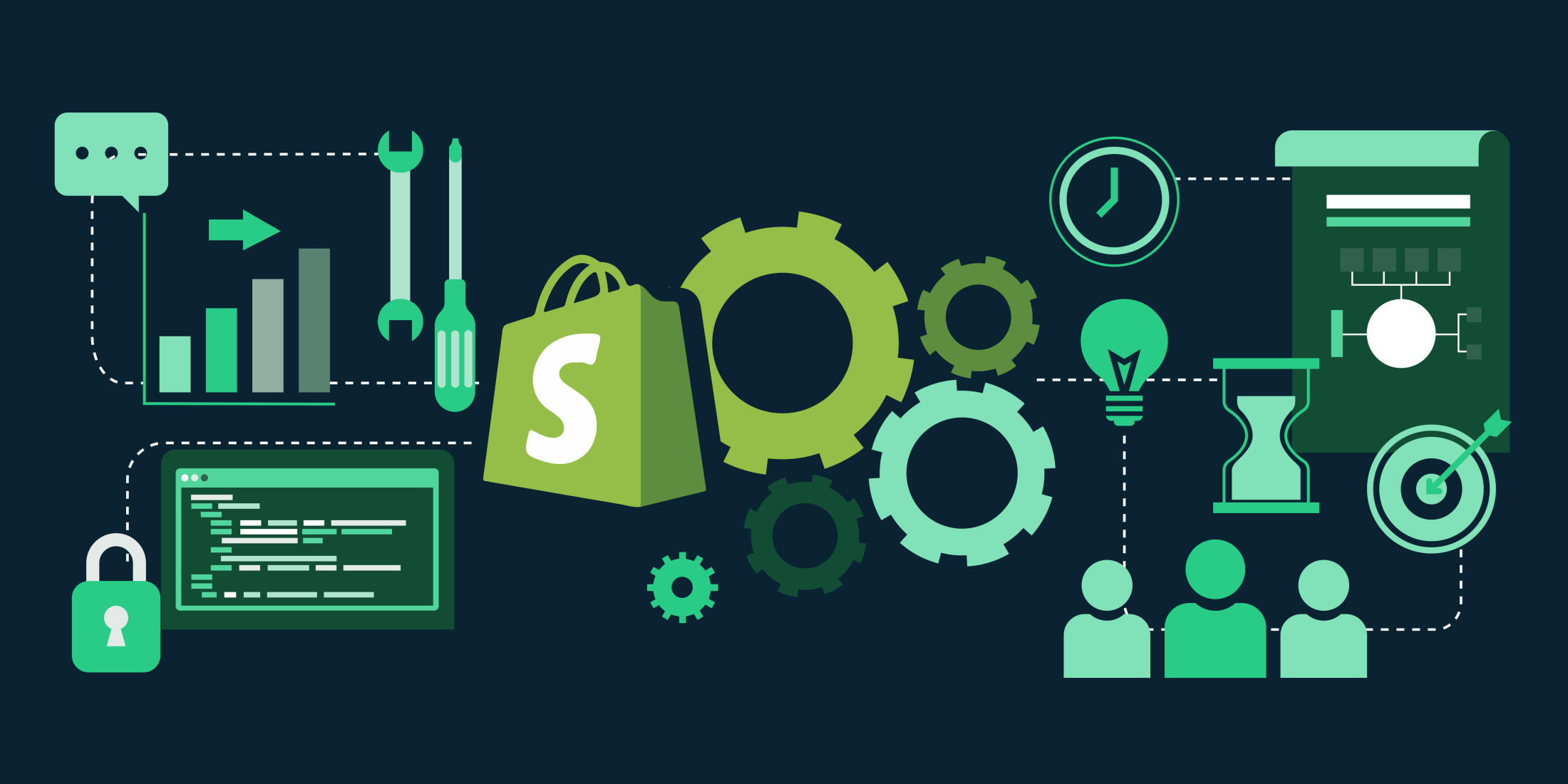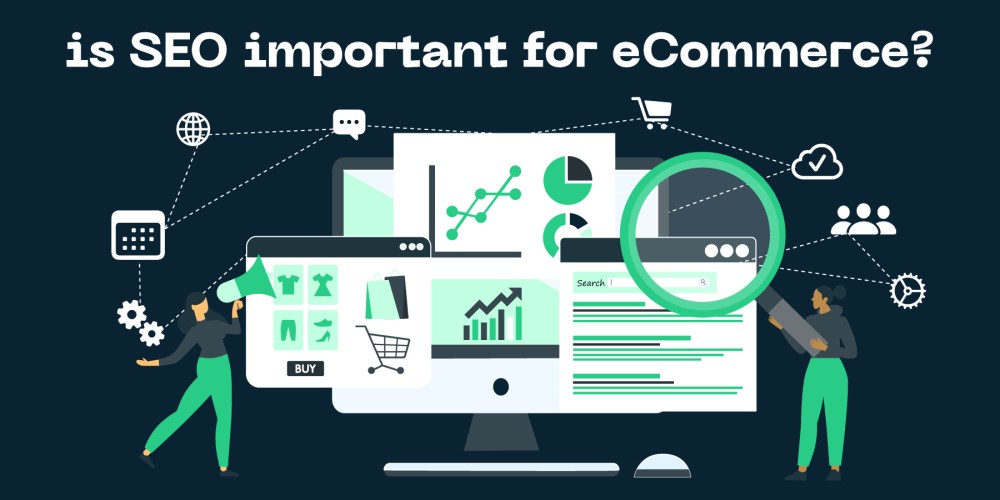How AI Agents Can Make Your Marketing More Efficient

Key Takeaways
- ConvertMate offers innovative AI agents to boost your eCommerce marketing efficiency.
- AI agents can help improve your conversion rates and provide personalized customer experiences.
- Optimizing content strategies is easy with AI, making your marketing efforts more effective.
- AI-driven tools streamline SEO, automate keyword analysis, and make dynamic content adjustments.
- Integrations with analytics tools, CMS, and ad platforms enhance overall marketing performance.
- Identifying key areas for AI use in your strategy and measuring success ensures continuous improvement.
Introduction to AI in eCommerce
Understanding AI Agents
The integration of artificial intelligence (AI) into eCommerce has revolutionized the way businesses interact with their customers. AI agents, in particular, are proving to be indispensable tools for marketers looking to enhance efficiency and improve conversion rates. These intelligent systems can analyze vast amounts of data far more quickly and accurately than any human, allowing eCommerce businesses to understand consumer behavior on a deeper level. By interpreting this data, AI agents can offer personalized recommendations, optimize pricing strategies, and provide targeted marketing, all of which contribute to a more tailored and effective customer experience.
One of the key benefits of using AI agents in marketing is their ability to automate time-consuming tasks. For instance, AI can handle customer segmentation by analyzing purchasing patterns and demographic information to create highly specific customer profiles. This enables marketers to deploy targeted campaigns that are more likely to resonate with specific audience segments, thereby increasing engagement rates. Furthermore, AI agents can optimize ad spend by predicting which channels and messages will yield the highest return on investment, ensuring that marketing budgets are utilized to their fullest potential.
Moreover, AI agents can significantly enhance customer service, which is a critical component of the marketing mix. By employing AI-powered chatbots, eCommerce businesses can provide instant, 24/7 customer support, addressing inquiries or issues promptly. This not only improves customer satisfaction but also frees up human resources to focus on more complex tasks that require a personal touch. Ultimately, by integrating AI agents into their operations, eCommerce marketers can streamline their processes, make data-driven decisions, and create a more engaging shopping experience, which can lead to higher conversion rates and increased customer loyalty.
Benefits of AI in Marketing
Artificial Intelligence (AI) is revolutionizing the eCommerce landscape, bringing unprecedented efficiency and precision to marketing strategies. AI agents can analyze vast amounts of data to derive insights that human marketers would find difficult, if not impossible, to identify. This ability to process information rapidly and accurately makes AI an indispensable tool for eCommerce businesses aiming to optimize their marketing efforts and increase conversion rates. By leveraging AI, marketers can tailor their campaigns to meet the specific needs and preferences of their audience, leading to more personalized experiences that resonate with potential customers.
One of the most significant benefits of AI in marketing is its ability to automate repetitive tasks, freeing up valuable time for marketers to focus on strategy and creativity. With AI, eCommerce store owners can automate tasks such as sending personalized emails, managing social media interactions, or even segmenting customer lists based on behavior and preferences. This automation not only ensures consistency and accuracy but also allows marketers to scale their efforts without sacrificing quality. Furthermore, AI can continuously learn and adapt, meaning that marketing strategies can evolve in real-time, staying ahead of trends and consumer behavior shifts.
AI agents provide valuable insights into consumer behavior through advanced data analytics. This level of understanding allows marketers to create highly targeted campaigns that are more likely to convert. By predicting customer behavior, AI can help eCommerce businesses anticipate customer needs and respond proactively, offering personalized recommendations or promotions that can lead to immediate sales. Additionally, AI enhances customer service by powering chatbots that provide instant assistance, improving customer satisfaction and loyalty. Overall, the integration of AI into marketing not only boosts efficiency but also significantly enhances the customer experience, making it a powerful tool for eCommerce store owners aiming to boost their conversion rates.
Enhancing Conversion Rates with AI
Personalized Customer Experiences
In the rapidly evolving world of ecommerce, personalized customer experiences are becoming increasingly pivotal in driving sales and enhancing conversion rates. Leveraging the power of AI, marketers can now offer a tailored journey for each customer, ensuring that every interaction is relevant and engaging. AI agents, with their ability to analyze large datasets, can uncover insights into consumer behavior, preferences, and buying patterns. This deep understanding allows businesses to customize their marketing strategies, offering personalized recommendations, targeted promotions, and tailored content that resonates with individual consumers. This level of personalization not only improves customer satisfaction but also significantly boosts conversion rates by delivering the right message to the right person at the right time.
AI agents streamline the process of personalizing customer experiences by automating and optimizing various marketing tasks. They can dynamically adjust marketing campaigns based on real-time data, ensuring that your marketing efforts remain agile and effective. For ecommerce store owners and marketers, this means less time spent on manual segmentation and more focus on strategic decision-making. AI-driven personalization can also extend to optimizing email marketing, improving product recommendations, and creating dynamic content on websites. By automating these processes, businesses can significantly reduce operational costs and increase efficiency, allowing marketers to allocate resources to more impactful activities.
Moreover, AI agents can help businesses predict future consumer behavior with impressive accuracy, enabling proactive marketing strategies. By anticipating customer needs and preferences, ecommerce stores can craft more compelling and timely offers, further enhancing the likelihood of conversion. This predictive capability not only strengthens customer loyalty but also fosters long-term customer relationships, leading to increased lifetime value. In essence, integrating AI into your marketing strategies not only personalizes the customer experience but also creates a more efficient, data-driven approach to boosting conversions and driving business growth.
Optimized Content Strategies
In the fast-paced world of ecommerce, leveraging AI agents to optimize content strategies can make a significant difference in enhancing conversion rates. AI tools have evolved to become not just facilitators but key players in crafting personalized customer experiences. By analyzing vast amounts of data in real time, AI can predict consumer behavior and help tailor content to meet the specific preferences and needs of individual customers. This ability to forecast and personalize at scale turns generic marketing campaigns into targeted, efficient strategies that resonate with the audience, ultimately boosting conversion rates.
One of the primary advantages of using AI in content strategies is its capacity for continuous learning and adaptation. AI algorithms can test various content versions, analyze performance metrics, and determine which approaches yield the best results. This dynamic process allows marketers to fine-tune their strategies continually, ensuring that they are always aligned with the latest consumer trends and behaviors. Additionally, AI can automate many aspects of content creation and distribution, freeing up valuable time for marketers to focus on strategic decision-making and creative endeavors. This efficiency not only enhances productivity but also contributes to a more agile marketing approach that can adapt swiftly to market changes.
Moreover, AI agents are instrumental in enhancing customer engagement through real-time interactions. By deploying chatbots and virtual assistants, ecommerce stores can provide instant support and personalized recommendations to shoppers, enriching the customer experience and encouraging conversions. These AI-driven interactions are available around the clock, ensuring that potential customers receive timely assistance and information, which can be critical in guiding them toward making a purchase. Overall, integrating AI into content strategies empowers marketers to create more effective, data-driven approaches that not only attract but also convert and retain customers, driving sustained business growth.
Streamlining SEO and Feeds
Automated Keyword Analysis
In the ever-evolving landscape of digital marketing, staying ahead of the competition requires efficiency and effectiveness. Automated keyword analysis is a powerful tool that leverages AI technology to streamline SEO and content feeds, offering a significant advantage for ecommerce store owners and marketers. By automating the process of keyword research, AI agents can identify the most relevant and high-performing keywords in a fraction of the time it would take a human. This enables marketers to optimize their content strategies swiftly and with precision. The result? A more targeted approach to reaching potential customers and increasing conversion rates.
Automation in keyword analysis means that AI agents can continuously monitor trends and shifts in consumer behavior, providing real-time insights that are crucial for maintaining an effective marketing strategy. For ecommerce businesses, this means the ability to adapt quickly to changing market demands and consumer interests, ensuring that their products remain visible to the right audience at the right time. The efficiency brought about by automated keyword analysis not only minimizes labor-intensive processes but also maximizes ROI by focusing efforts on the most impactful areas.
Moreover, automated keyword analysis can contribute to trend prediction and forecasting, allowing marketers to proactively adjust their strategies and content plans. This proactive approach to SEO and content management can lead to higher search engine rankings and better alignment with consumer needs. In a digital ecosystem where every click counts, the ability to effectively utilize AI agents for keyword analysis can be a game-changer for ecommerce businesses aiming to enhance their online presence and boost conversions. Embracing this technology is not just about keeping up with the competition; it's about setting the pace.
Dynamic Content Adjustments
Dynamic Content Adjustments play a pivotal role in streamlining SEO and feeds by allowing e-commerce store owners to present relevant and engaging content to each unique visitor. By leveraging AI agents, marketers can dynamically adjust website content based on user behavior, preferences, and past interactions. This personalization not only enhances user experience but also significantly boosts conversion rates. AI-driven dynamic content adjustments ensure that search engines regularly find fresh and relevant content, improving search engine rankings. For instance, if a visitor has previously shown interest in a particular category of products, the AI can prioritize showcasing similar or complementary products during their subsequent visits, effectively increasing the chances of conversion.
Moreover, dynamic content adjustments powered by AI agents can automate and optimize product feeds for various marketplaces and social media platforms. These AI tools analyze demographic data and behavioral insights to tailor product displays, ensuring that the most appealing and relevant products are shown to the right audience. This not only saves time and reduces manual effort but also enhances the precision of marketing campaigns. As a result, e-commerce businesses can enjoy improved targeting and greater ROI from their marketing efforts. With AI handling these intricate adjustments, marketers can focus on strategy and creativity, knowing that their content presentation is continuously optimized for maximum impact.
In essence, the integration of AI agents into marketing strategies allows businesses to harness the power of dynamic content adjustments effectively. By doing so, they can maintain a competitive edge in the rapidly evolving digital marketplace. The ability to deliver personalized and timely content not only fosters customer loyalty but also encourages repeat purchases. As AI technology continues to evolve, its potential to make marketing more efficient and adaptive becomes even more significant, making it an indispensable tool for modern e-commerce success.
Integrations for Improved Efficiency
Analytics Tool Integration
The integration of analytics tools into your marketing strategy can significantly enhance operational efficiency, particularly when paired with AI agents. For ecommerce store owners and marketers looking to boost their conversion rates, this coupling offers a powerful synergy. By integrating analytics tools, you can gain deeper insights into customer behavior, preferences, and trends. These insights can then be leveraged by AI agents to tailor marketing campaigns in real-time, ensuring that your messaging resonates more effectively with your target audience. This dynamic approach not only saves time but also optimizes resource allocation, allowing you to focus on strategic growth initiatives rather than getting bogged down with manual data analysis.
Integrations for Improved Efficiency are crucial in today's rapidly evolving digital landscape. By connecting your AI agents with analytics platforms, you can automate a myriad of tasks, from predicting customer purchase patterns to personalizing product recommendations. This seamless integration enables data to flow effortlessly between systems, breaking down silos and fostering a more cohesive marketing ecosystem. As a result, marketing teams can make informed decisions faster, responding to market changes and customer needs with agility. This responsiveness is vital for ecommerce businesses aiming to stay competitive and increase their conversion rates.
Moreover, the integration of analytics tools with AI agents not only streamlines processes but also enhances the accuracy of your marketing efforts. AI agents learn from the continuous influx of data, improving their predictions and recommendations over time. This leads to a more personalized experience for customers, which is a key driver of conversion and retention. In essence, the strategic integration of analytics tools with AI agents empowers ecommerce marketers to act with precision and foresight, ultimately leading to more efficient marketing operations and a higher return on investment.
CMS and Ad Platform Integration
Integrations between Content Management Systems (CMS) and advertising platforms have become essential in the pursuit of improved marketing efficiency, particularly for ecommerce store owners and marketers focused on increasing conversion rates. By connecting these platforms, businesses can streamline their operations, allowing them to automate mundane tasks and focus more on strategic initiatives. The integration facilitates seamless data flow between content creation and advertising, enabling a more cohesive and targeted marketing approach. This not only reduces the time spent on manual data entry but also minimizes errors, ensuring that marketing campaigns are launched with the most accurate and up-to-date information.
For ecommerce businesses, the ability to harness AI agents in these integrations can be a game-changer. AI agents can analyze vast amounts of data from both CMS and ad platforms, generating insights that were previously hidden or difficult to access. These insights can inform better decision-making and enhance the precision of advertising efforts. With AI-driven analytics, marketers can identify trends and consumer behaviors in real-time, allowing them to tweak their strategies dynamically to maximize impact. This level of adaptability is pivotal in today's fast-paced digital market, where consumer preferences can shift rapidly.
Moreover, the integration of CMS and ad platforms through AI agents can significantly optimize resource allocation. By automating routine tasks, such as content scheduling and ad placement, marketing teams can allocate more time and energy to creative development and strategic planning. This not only enhances the overall quality of marketing campaigns but also boosts team productivity. Ultimately, the synergy between CMS, ad platforms, and AI agents can lead to more intelligent marketing practices that drive higher conversion rates and deliver better ROI for ecommerce businesses.
Implementing AI in Your Strategy
Identifying Key Areas for AI Use
The integration of AI agents into your marketing strategy begins with identifying the key areas where they can deliver the most value. For ecommerce store owners, this often means looking at the entire customer journey from acquisition to retention and finding opportunities to enhance efficiency and personalization. AI excels in analyzing vast amounts of data to uncover patterns and insights that would otherwise remain hidden. By employing AI in customer segmentation, for instance, marketers can craft more personalized experiences that resonate with individual customers, ultimately driving higher conversion rates.
Another crucial area for AI implementation is customer support. AI-powered chatbots and virtual assistants can handle a multitude of routine inquiries, freeing up human agents to focus on more complex issues. This not only accelerates response times but also enhances customer satisfaction. For ecommerce businesses, providing immediate and accurate responses to customer queries can be the difference between a completed sale and an abandoned cart. Therefore, employing AI agents in this capacity can directly contribute to an increase in conversion rates.
Moreover, AI can revolutionize your marketing automation efforts by optimizing various aspects such as email marketing, product recommendations, and ad targeting. For example, AI algorithms can predict the best times to send marketing emails or suggest products based on a customer’s browsing history and preferences. By implementing AI in these areas, you can ensure that your marketing efforts are not only efficient but also highly relevant to your target audience. This relevance is crucial in maintaining customer engagement and ultimately converting interest into sales.
Measuring Success and Adjustments
When implementing AI in your marketing strategy for an ecommerce store, measuring success and making necessary adjustments is crucial. AI agents can streamline various aspects of your marketing efforts, but understanding their impact requires careful analysis. By setting clear objectives from the outset, such as increased conversion rates, reduced cart abandonment, or enhanced customer engagement, you can better evaluate the effectiveness of your AI tools. Utilize data analytics to track performance metrics and determine whether your AI-driven strategies are achieving their intended goals. Continuous monitoring allows you to identify patterns and trends that indicate success or areas requiring improvement.
Moreover, adjustments are an inevitable part of leveraging AI in marketing. The digital landscape is dynamic, with consumer behaviors and preferences constantly evolving. AI agents can provide real-time insights and predictive analytics, enabling you to refine your marketing campaigns more effectively. For example, if an AI tool identifies that a particular segment of your audience is more responsive to personalized email campaigns, you can tailor your strategies to focus on that approach. The ability to pivot and recalibrate your tactics based on AI-generated insights ensures that your marketing efforts remain relevant and impactful.
Ultimately, the success of AI in your marketing strategy hinges on your willingness to adapt and optimize. While AI agents offer powerful tools to enhance efficiency, human oversight and strategic decision-making remain essential. By regularly reviewing performance data and being open to changing course when necessary, ecommerce store owners and marketers can harness the full potential of AI. This balance between technology and human insight will not only drive higher conversion rates but also foster a more agile and responsive marketing strategy.
FAQS
How do AI agents improve the conversion rate of eCommerce stores?
AI agents enhance conversion rates by analyzing customer data to personalize shopping experiences, predicting customer behavior, and optimizing product recommendations. By targeting the right audience with the right content, AI agents increase the likelihood of conversions.
Can AI agents help with SEO optimization in eCommerce?
Yes, AI agents can analyze large datasets to uncover SEO opportunities, optimize keyword usage, improve content relevance, and predict search engine trends. This allows eCommerce stores to improve their search rankings and drive more organic traffic.
What role do AI agents play in managing marketing feeds?
AI agents automate the management of marketing feeds by optimizing product data for different platforms, ensuring accurate and consistent information across channels, and identifying top-performing products to focus marketing efforts on.
How can AI agents integrate with existing analytics tools?
AI agents can seamlessly integrate with existing analytics tools to provide deeper insights into customer behavior and marketing performance. They transform raw data into actionable insights, enabling eCommerce brands to make data-driven decisions.
Can ConvertMate's AI agents work with ad platforms?
Yes, ConvertMate integrates its AI agents with various ad platforms, allowing for the automation of ad bidding strategies, audience targeting, and performance analysis. This ensures that marketing budgets are utilized efficiently and effectively.
How can AI agents help with content management systems (CMS) in eCommerce?
AI agents can enhance a CMS by automating content personalization, streamlining content updates, and optimizing the customer journey on a website. They ensure that the right content reaches the right audience at the right time.
What is the unique advantage of using ConvertMate for eCommerce marketing automation?
ConvertMate offers a comprehensive solution that integrates AI agents across various marketing channels, including SEO, feeds, and ad platforms, all tailored for eCommerce businesses. This holistic approach ensures a seamless automation experience, leading to increased efficiency and higher conversion rates.



